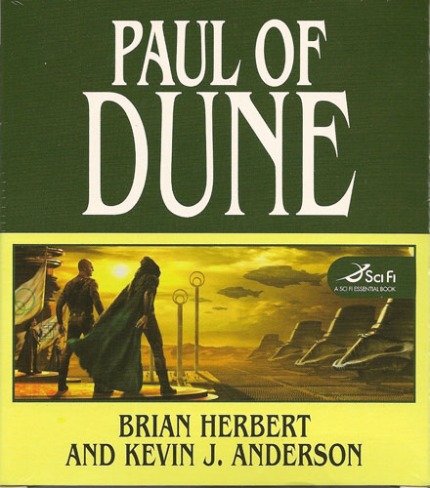While Peter Jackson’s big-screen adaptation of J.R.R. Tolkien’s The Lord of the Rings really opened the door for large-scale adaptations of genre fiction (referring here to both fantasy and science fiction), it was David Benioff and Dan Weiss’s adaptation-for-television of George R.R. Martin’s A Song of Ice and Fire series that really changes the paradigm for long-format adaptations. Lip service must of course also be given to the Harry Potter film franchise, which demonstrated that it is possible to split a film into two parts without losing audience attention (a pattern later adopted by the Twilight franchise).
Still, long-time fans of Dune will realize that even splitting the first novel into two feature length films is the wrong choice if one wants to see the entire series on screen. If Dune is to be split into two films, Children of Dune must necessarily be split as well, and we’re looking at five films.
It seems, then, counter-intuitive to suggest 5+ 10-episode SEASONS for premium cable, but consider the cost (in dollars, not melange): a season of Game of Thrones costs HBO ~$60 million, whereas a single blockbuster film on the scale Dune would require–we’ll use ONE Lord of the Rings film for the sake of comparison–cost $94 million dollars (and that was in 2003).
More than that, though, is the time scale. Each installation of The Lord of the Rings lasts approximately 3 hours, whereas each season of Game of Thrones clocks in at just under 10. The extra screen time allows for much higher fidelity in adaptation to the source material, allowing more time for the nicety of detail required by a literary work of such complexity as Dune. Futhermore, Game of Thrones demonstrates that the audience is out there. Not that every fan of Game of Thrones is a fan of Dune, that’s absurd. No, I mean to say that the general audience, originally ignorant of both–but willing to the commitment of time and attention required by a monolithic series like BOTH Dune and Game of Thrones.
Before Game of Thrones, no one thought it was possible to faithfully adapt a set of genre fiction novels to the level of fidelity and at the cost-level given it by HBO to be worth the returns. Yet Game of Thrones is currently enjoying its third season, the most recent episode of which enjoyed the series’ highest ratings to date, with 4.72 million viewers in its initial airing alone.
I argue that this opens the floodgates to allow for even more series-scale adaptations to hit premium cable networks…Dune most of all.


